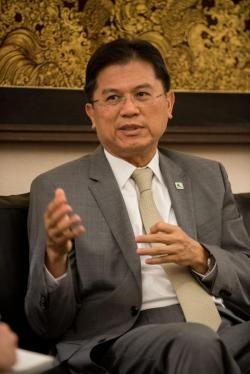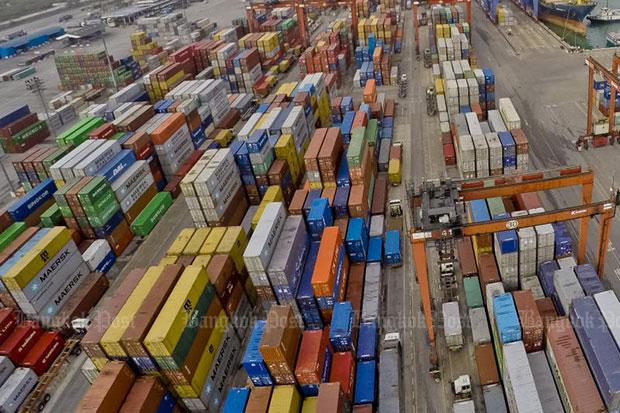Thailand: Private sector stays cautious on exports
Thailand’s top business group is keeping this year’s export forecast at 3.5-4% as it remains cautious over a number of downside risks.

Predee: Some factors still need monitoring
The group is set to review the forecast at the next meeting in October.
“Although there’s a greater chance that exports might register higher-than-expected value this year, the committee still needs to consider a number of risks that could affect growth,” Predee Daochai, chairman of the Thai Bankers’ Association, said yesterday after the Joint Standing Committee on Commerce, Industry and Banking’s (JCCIB) monthly meeting.
These risks include Hurricane Harvey’s effects on the US economy, political developments there, geopolitical tensions over North Korea and the baht’s trajectory.
Mr Predee said that the 8.2% export growth recorded in the first seven months of this year was higher than the estimation made by the committee.
The JCCIB is also maintaining its economic growth forecast at 3.5-4%.
He said the Thai economy grew at a quicker pace than the committee had expected in the second quarter, mainly supported by exports and tourism.
“But there are a number of factors that still warrant monitoring such as the recent flood’s effects on farm income and the appreciation of the baht,” said Mr Predee.
The baht has gained at a faster clip than its regional peers in recent months due to a number of factors, including a strong current account surplus, capital inflows and the US dollar’s retreat, he said.
Meanwhile, Mr Predee said the private sector is working with the government to help educate Thai small and medium-sized enterprises (SMEs) on hedging against foreign exchange risks, while also offering hedging instruments with lower fees.
Bank of Thailand governor Veerathai Santiprabhob has said that together with the central bank and government agencies, Thai commercial banks will introduce a foreign exchange option with lower fees specifically targeting Thai SMEs. The agencies include the Office of Small and Medium Enterprises Promotion and the Export-Import Bank of Thailand.
Mr Predee said SMEs will have to participate in the programme, which will educate them about hedging, before using the product.
“The measure should be finalised by next week, after which the private sector can go out and educate SMEs both in Bangkok and the provinces,” he said.
Kalin Sarasin, chairman of the Thai Chamber of Commerce (TCC), said most large firms are naturally hedged, as they are both importers and exporters, while most Thai SMEs are not appropriately hedged.
“Almost 90% of Thai SMEs do not hedge, so the TCC has already begun educating SMEs about hedging,” said Mr Kalin.
With the monsoon season set to end, tourist arrivals in Thailand are expected to grow for the rest of the year, helping boost consumption and, in turn, raising farm income, he said.
Source: http://www.bangkokpost.com/business/news/1319015/private-sector-stays-cautious-on-exports


 Thailand
Thailand




